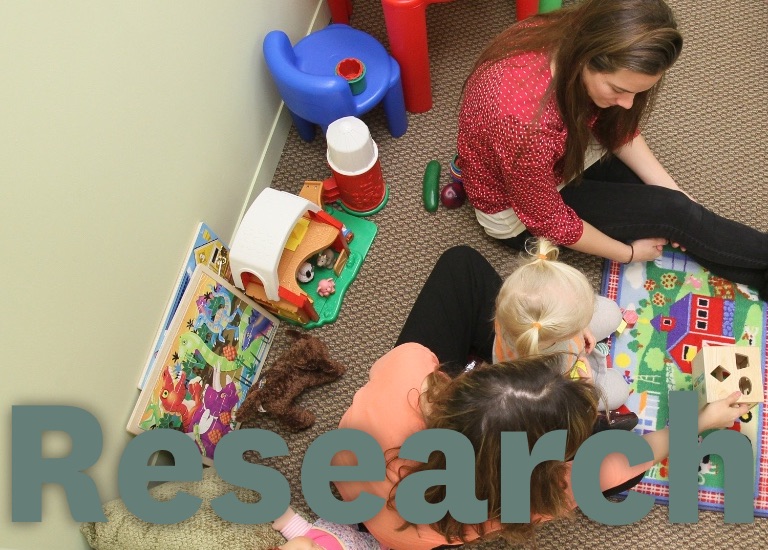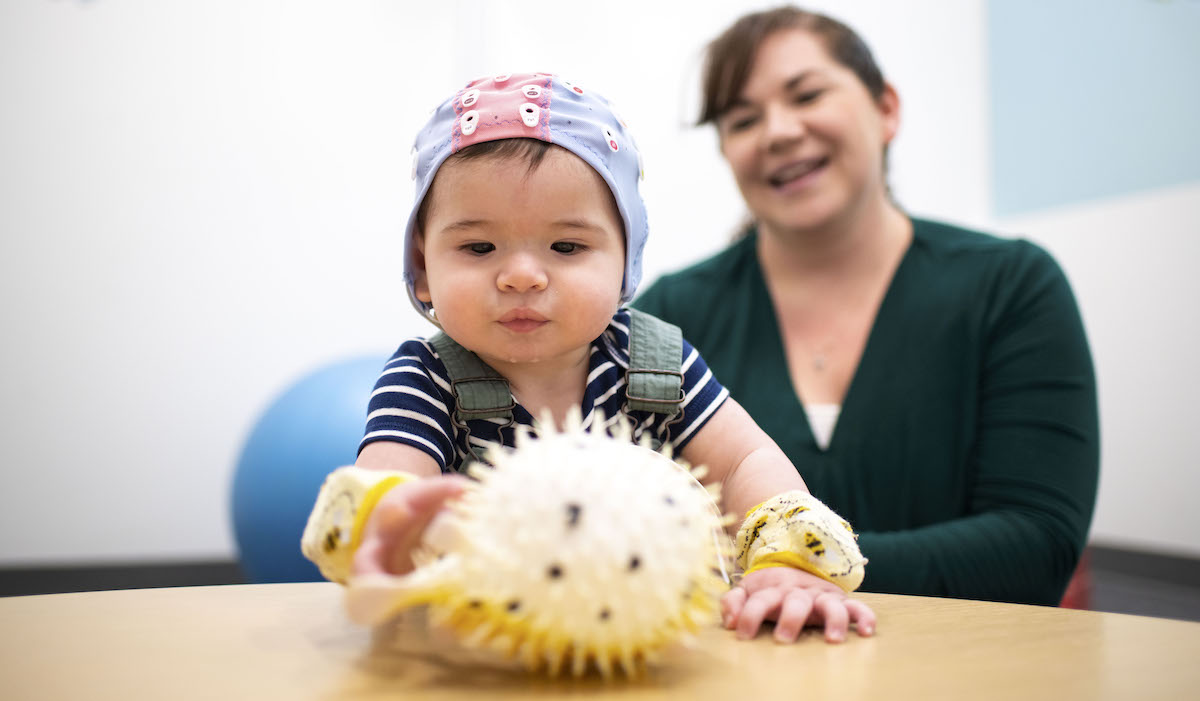Sensory Experiences Project (SEP)
Principal Investigator: Grace Baranek PhD, OTR/L, FAOTA
Co-Investigators: Aysenil Belger PhD; Brian Boyd PhD; Virginia Dickie PhD; Linda Watson EdD, CCC-SLP
Period
Jul 2008 – Jun 2014
Total funding
$2,516,180
The SEP was a 10-year longitudinal study that has concluded enrollment and is in the data analysis phase. The purpose of this project was to explain the development, functional impact, and pathogenesis of unusual sensory experiences in children with ASD, developmental delay and/or typical development with implications for early identification and intervention. The SEP also examined sensory subtypes of children with ASD.
The SEP included a series of six studies:
- Study 1: Prospective Developmental Study examined the stability of sensory features and their functional impact over time.
- Study 2: Developmental Study of Infants (Infant Behavior Project) used video analysis to explore infant behavioral precursors to later sensory response patterns.
- Study 3: Observational and Experiential Study examined sensory experiences in the home via personal accounts of parents and verbal children and in-home observations.
- Study 4: Neurocognitive Mechanisms applied Electroencephalography (EEG) technology to help determine potential causes of unusual sensory response patterns.
- Study 5: Sensory Phenotypes aimed to determine sensory subtypes of ASD using longitudinal online data collection.
- Study 6: Eye Tracking Study of Children’s Visual Attention examined children’s ability to look at and shift attention during a computer video task.
Funding
| Type | Source | Number | Amount | Period |
|---|---|---|---|---|
| Federal | NIH/Eunice Kennedy Shriver National Institute of Child Health and Human Development | R01HD042168 | $2,516,180 | Jul 2008 – Jun 2014 |






